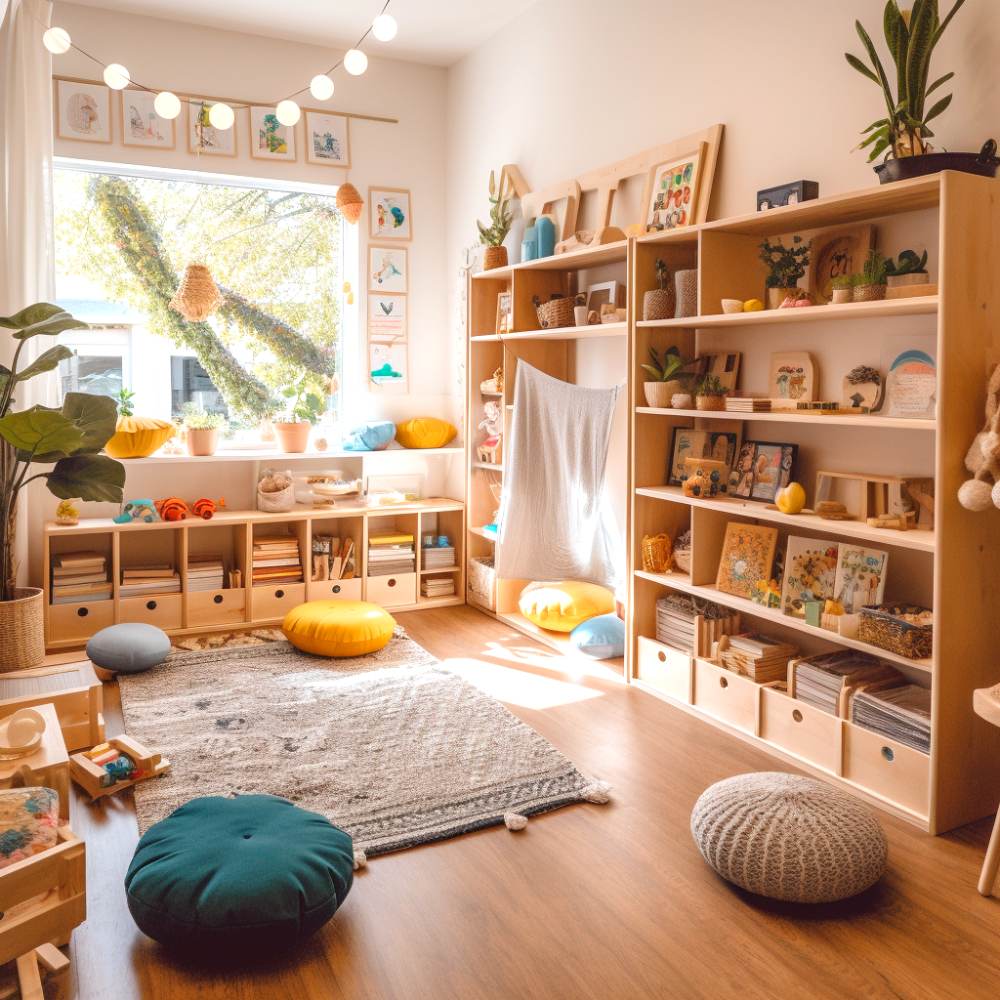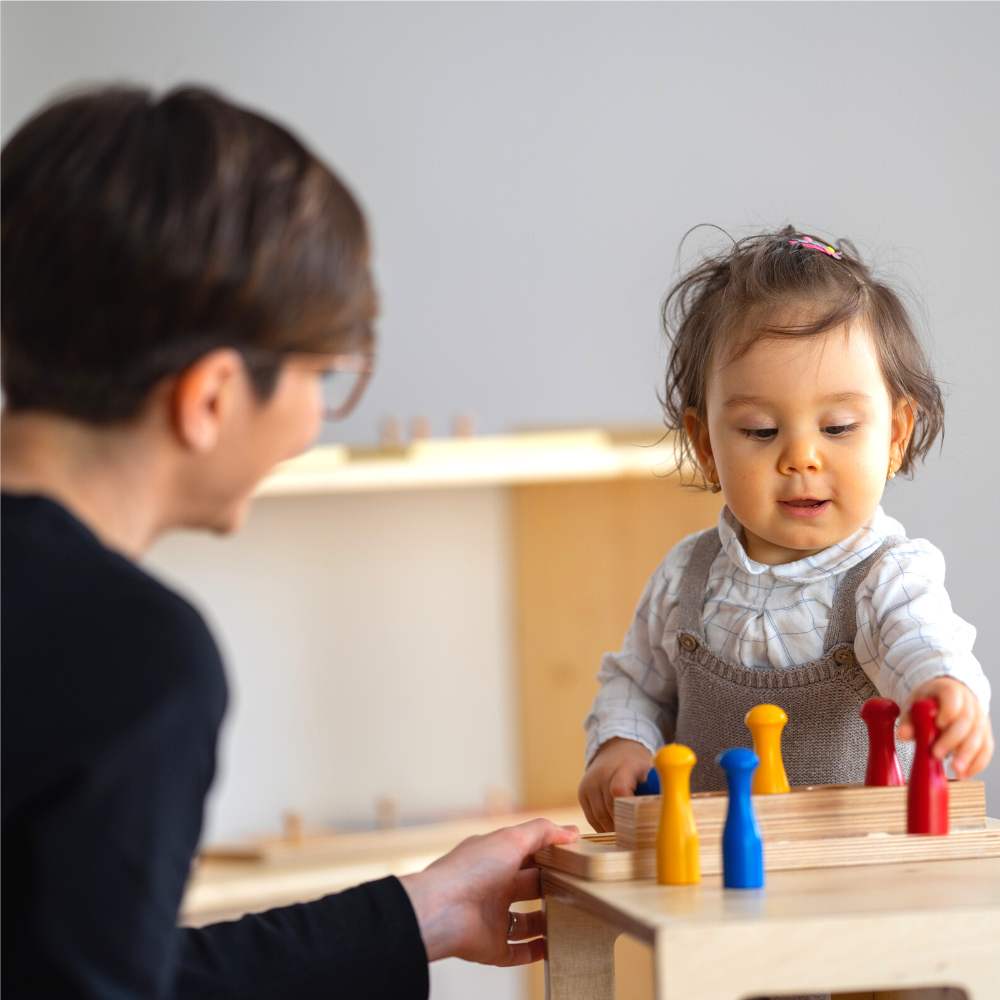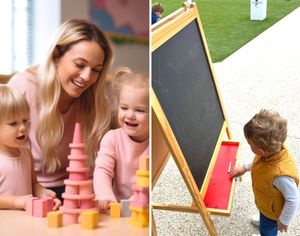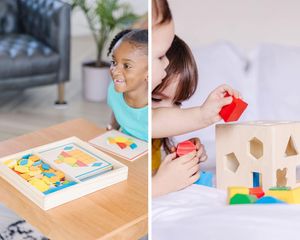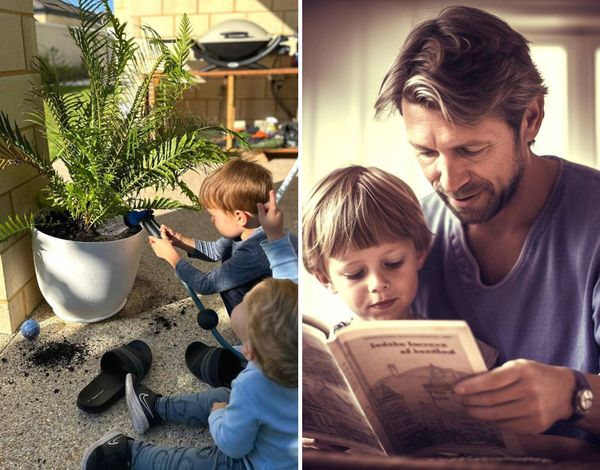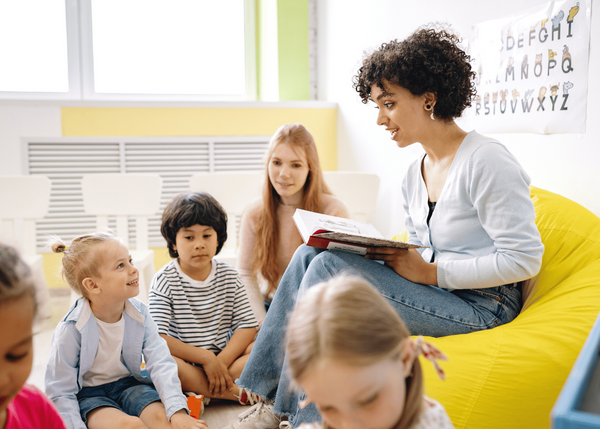Imagine embarking on an educational journey that doesn't merely focus on academic achievement, but also cherishes the individuality of each child, fueling their natural curiosity and love for learning. This is the crux of the Montessori education philosophy, a transformative approach that breathes life into early childhood education and beyond.
Developed by Dr. Maria Montessori, this philosophy has changed the course of education by offering an alternative to traditional teaching methods. It's not about rote memorization or standardized tests. Instead, it's about embracing children's innate desire to learn, fostering their independence, and enabling them to explore at their own pace within a prepared environment. It's about shaping well-rounded individuals who are self-motivated, socially empathetic, and equipped with the skills to succeed in an ever-changing world.

At the core of the Montessori philosophy is the belief that children are intrinsically motivated to learn and grow. Montessori educators follow five basic principles: respect for the child, the absorbent mind, sensitive periods, the prepared environment, and auto-education. We will cover these in more depth throughout the guide.
My personal journey into Montessori began almost unconsciously, as I found myself introducing Montessori-inspired activities at home with my firstborn, Christian. The more I noticed his active engagement and the joy he found in learning, the more I was drawn toward the Montessori method. The defining moment came when Christian joined a Montessori preschool program.
Witnessing firsthand the vibrant, hands-on learning environment, his constant interaction with the materials, and his growing curiosity about the world around him, I knew we had discovered something extraordinary. The Maria Montessori philosophy wasn’t just an educational model—it was a journey of self-discovery and lifelong learning.
In this comprehensive guide, we'll navigate through the intriguing world of Montessori education from the perspective of my research (I'll cite references where possible so you can carry out further reading if you wish).
Here’s what we’ll explore together:
- The rich history and roots of the Montessori philosophy, including its groundbreaking founder, Dr. Maria Montessori.
- The core Montessori principles that shape its unique approach.
- The intricacies of Montessori classrooms and their prepared environments.
- The pivotal roles of Montessori teachers and parents.
- The benefits, limitations, and misconceptions about the Montessori method.
- The application of Montessori philosophy across different age groups.
Join me on this enlightening journey and discover how Montessori education can shape the future of your child’s learning.
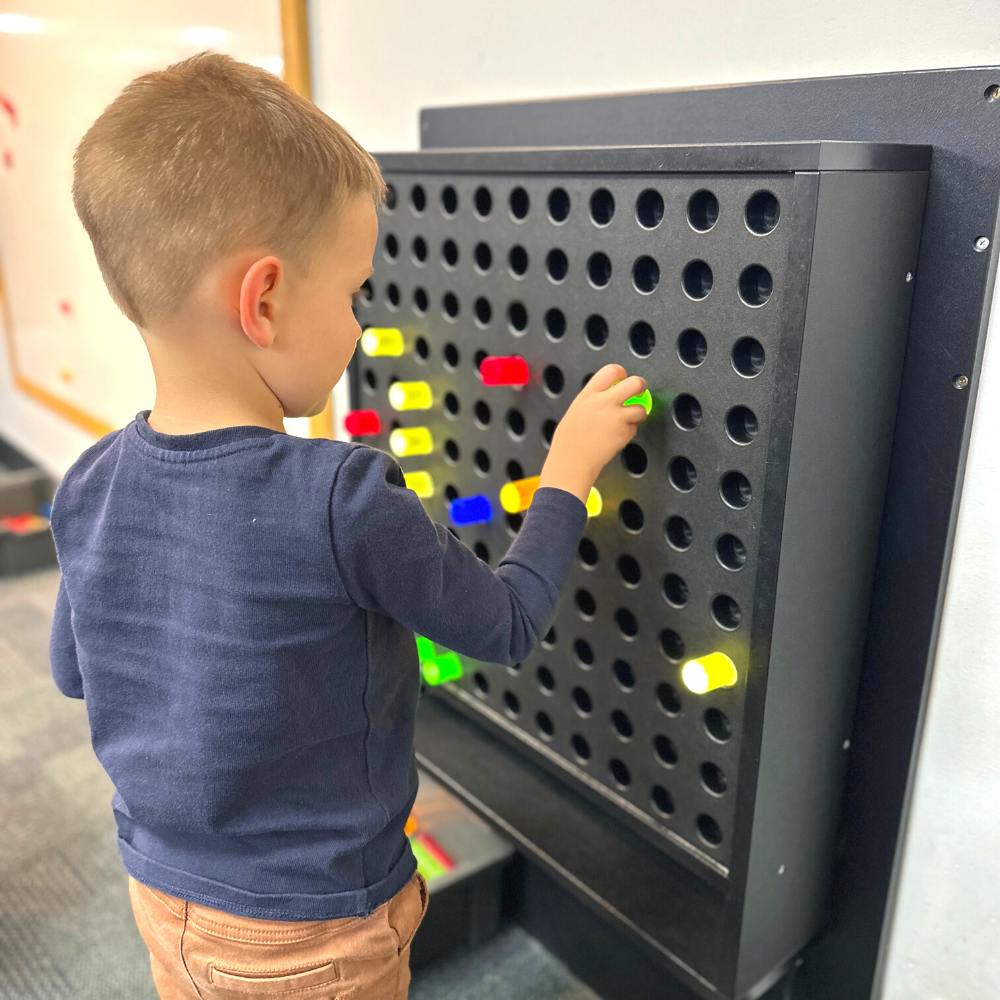
History of Montessori Education
Maria Montessori
Dr. Maria Montessori was an Italian physician who, in 1896, became Italy's first female physician. During her time at the University of Rome's psychiatric clinic, she observed children with disabilities and recognized their potential for learning. Montessori's research led her to develop a new educational philosophy, focusing on the unique needs and abilities of each individual child.
Casa Dei Bambini
In 1907, Montessori applied her philosophy in the first Montessori school, called Casa dei Bambini, or Children's House. Here, she developed the Montessori Method, a revolutionary approach to education that emphasized hands-on, self-guided learning in a carefully prepared environment.

Key Montessori fundamentals include:
- Child-centered learning: Montessori recognized that children have an intrinsic motivation to learn and grow. By providing a nurturing and stimulating environment, children are encouraged to explore and learn at their own pace.
- Individualized instruction: Montessori classrooms are designed to meet the needs of each child, with materials and activities tailored to their individual stages of development.
- Mixed-age classrooms: Montessori schools often combine children of different ages in the same classroom, enabling older children to mentor younger ones and fostering a sense of community and collaboration.
- Hands-on learning: Montessori believed that children learn best by engaging in purposeful activities that help them develop concentration, coordination, and a sense of order.
- Freedom within limits: Montessori students are given the freedom to choose their activities and set their schedules but must adhere to the rules and expectations of their classroom community.
Associations and Impact
The Montessori Method has spread through organizations like the Association Montessori Internationale (AMI), which Montessori founded in 1929. Today, Montessori schools operate across the globe, providing unique and impactful educational experiences for young learners.
Five Montessori Principles
Respect for the Child
At the heart of the Montessori philosophy is a profound respect for the child. This fundamental principle recognizes that each child is a unique individual, capable of self-directed learning. It acknowledges their rights, needs, and potential, encouraging independence and self-confidence. Children are trusted to make choices and take the lead in their learning journey, fostering a sense of ownership and responsibility. This respectful approach forms the bedrock of the Montessori method, shaping every aspect of the learning environment and experience.
As a rule, however, we do not respect children. We try to force them to follow us without regard to their special needs. We are overbearing with them, and above all, rude; and then we expect them to be submissive and well-behaved, knowing all the time how strong is their instinct of imitation and how touching their faith in and admiration of us. They will imitate us in any case. Let us treat them, therefore, with all the kindness which we would wish to help to develop in them (Maria Montessori, 1965).
The Absorbent Mind
The term "absorbent mind" was coined by Dr. Maria Montessori to describe the child's mind from birth to around six years. During this stage, children absorb information from their environment like a sponge. They learn effortlessly and unconsciously, rapidly acquiring language, culture, and countless skills. This unique mental capacity underscores the importance of providing a rich, stimulating environment filled with opportunities for exploration and discovery.
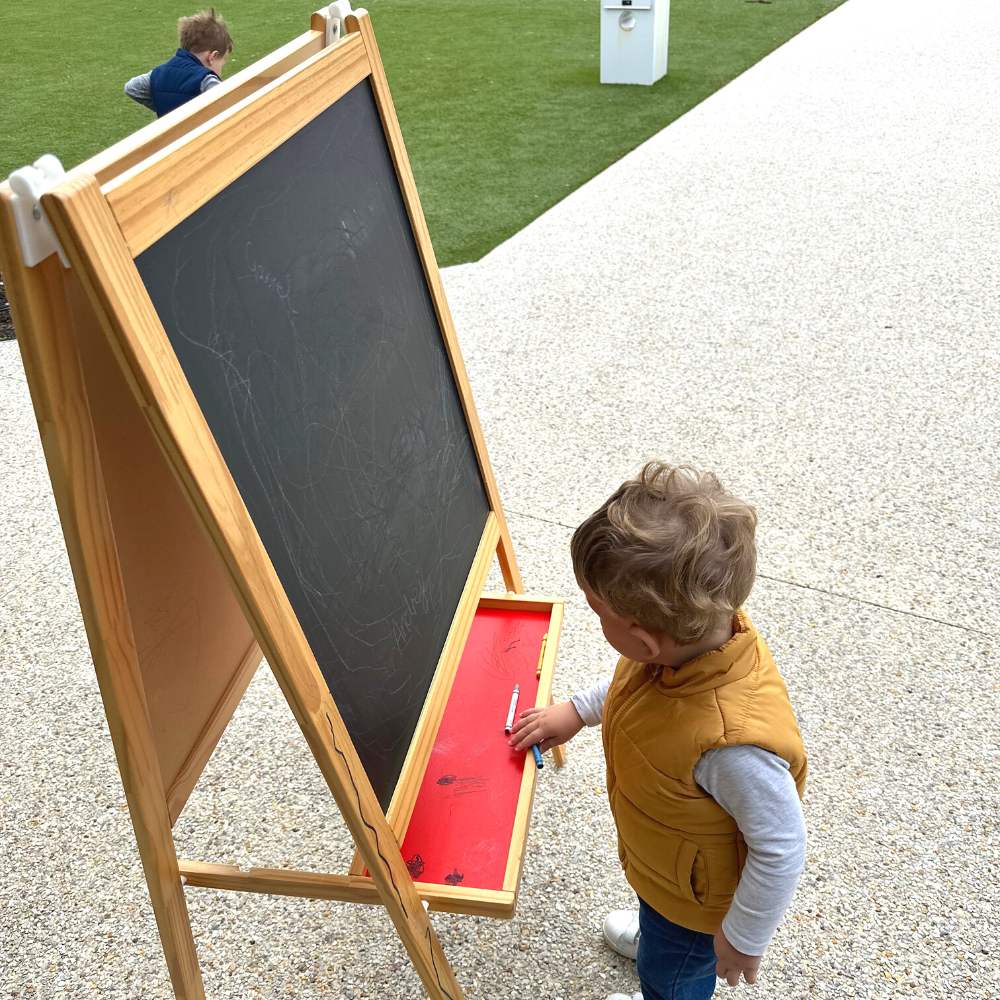
Sensitive Periods
Dr. Montessori identified specific windows of opportunity, or "sensitive periods," during which children show heightened sensitivity to particular aspects of their environment. These can range from language acquisition to refinement of motor skills or sensitivity to order. During these periods, children learn with exceptional ease and enjoyment. Recognizing and capitalizing on these sensitive periods is a key part of the Montessori approach, allowing for optimal learning and development.
The Prepared Environment
The prepared environment is an integral component of Montessori education. It is a carefully curated space designed to stimulate learning and meet the needs of children at various developmental stages. The environment includes specific materials designed for hands-on exploration, encourages independence, and promotes freedom within limits. Everything in the Montessori classroom has a purpose and is thoughtfully arranged to engage learners, facilitate independence, and foster a love of learning.
Autoeducation (Self-Education)
Autoeducation, or self-education, is the belief that children are capable of teaching themselves through interaction with their environment. Dr. Montessori observed that children learn best when they are actively involved in their learning process. This principle underpins the Montessori curriculum, which is filled with self-correcting materials designed to allow children to learn from their mistakes and grow at their own pace.

From my experience and perspective, these principles are not just educational strategies; they are a testament to the incredible potential of children. They recognize children as naturally curious, capable, and eager to learn, and provide an environment that nurtures these qualities. This approach respects children's individuality, empowering them to become confident, independent learners who take an active role in their education.
Moreover, these principles extend beyond the classroom, influencing children's character development and worldview. They foster respect for oneself and others, cultivate a love for learning, and encourage responsibility, adaptability, and critical thinking. These are invaluable skills that equip children to navigate life's challenges and opportunities, making the Montessori philosophy not just a method of education, but a preparation for life.
Montessori Classrooms
Multi-Age Classroom
In a Montessori classroom, one key feature is the multi-age classroom, which accommodates students within a 3-year age range. This arrangement fosters mentorship, collaboration, and leadership development. As children work together, the older students naturally mentor their younger peers, while younger students can observe and learn from older students.
The Montessori classroom promotes independence and self-determination, allowing the child to choose activities and tasks within a prepared environment. Montessori classrooms are filled with a wide array of sequenced learning activities, known as Montessori materials. These materials are designed to be accessible for children and are arranged in a visually appealing and organized manner.
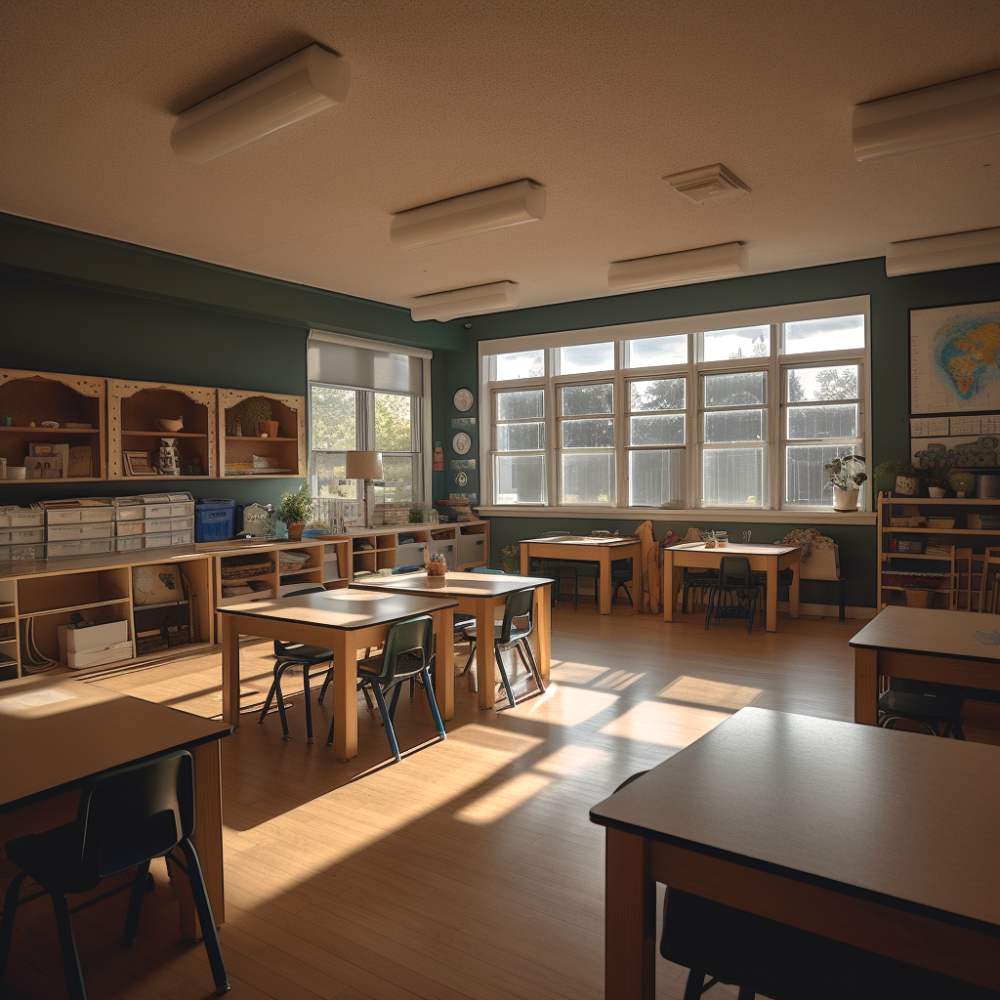
Work Cycle
Central to the Montessori philosophy is the idea that children learn best through uninterrupted periods of work, also known as the work cycle. During the work cycle, children have the freedom to choose their activities and engage with them at their own pace. This process fosters concentration, self-discipline, and ultimately a sense of accomplishment.
A typical work cycle can be broken down into the following stages:
- Choosing an activity: The child selects an activity based on their interests, abilities, and developmental needs.
- Engaging with the activity: The child works with the chosen material, exploring its potential and discovering new concepts and ideas.
- Cleaning up and returning the activity: Once the child has completed the activity, they are responsible for cleaning up and returning the material to its proper place, promoting self-discipline and respect for the classroom environment.
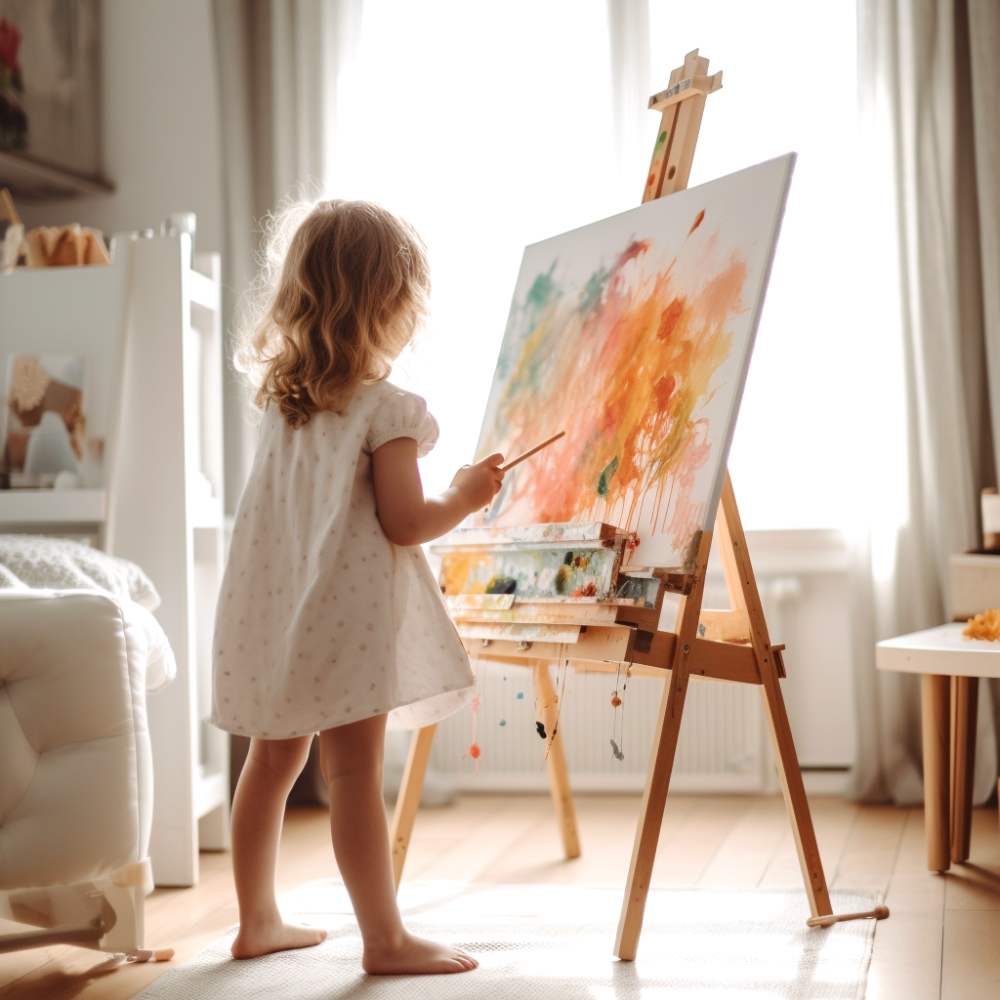
The Montessori method of education transcends traditional education by fostering a child-centric environment that cherishes and nurtures each child's individuality. From multi-age groups that encourage natural mentorship, to hands-on learning materials that ignite curiosity and self-discovery, to the distinctive work cycle promoting self-paced learning — these are the hallmarks of Montessori classrooms today.
The Montessori programs, with their holistic approach, equip children not just with academic prowess, but with invaluable life skills, a love for learning, and a deep sense of respect for themselves and others. It's a beautiful journey of growth and independence, a celebration of the potential each child carries within. As parents, educators, and caregivers, it's our privilege to guide them along this path.
Montessori Materials and Learning
Purposeful Design
Montessori materials are unique in their design and purpose. Each is carefully crafted to promote self-discovery, hands-on learning, and developmentally appropriate skills. They range from simple to complex, and from concrete to abstract, mirroring the cognitive growth journey in younger children.
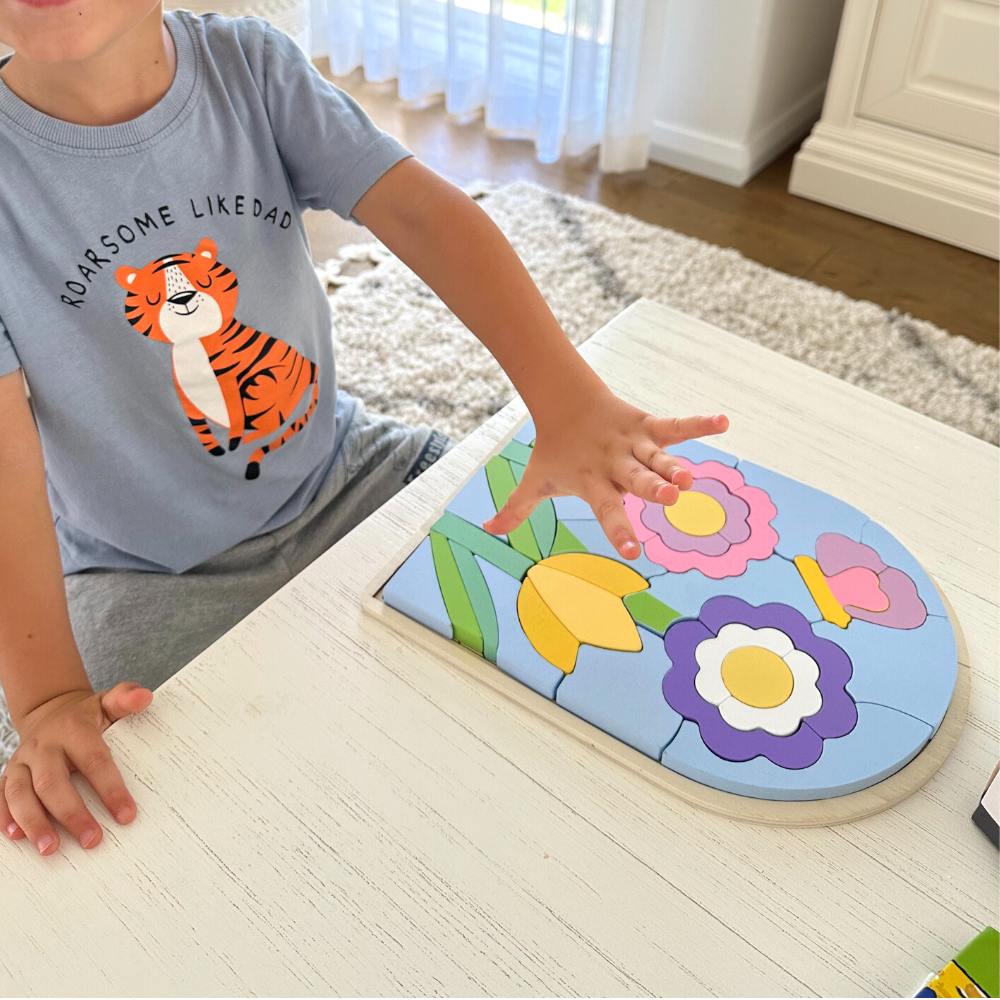
Self-Correcting Nature
A significant characteristic of Montessori materials is their self-correcting nature. This aspect allows children to recognize and learn from their errors independently, encouraging self-reliance and fostering a sense of personal achievement.
Catering to Sensitive Periods
Montessori materials are also designed to cater to sensitive periods in a child's development, as we've defined them in the previous section. These periods, during which a child is especially receptive to learning specific skills, are maximized by providing the appropriate materials. This targeted approach facilitates the child's natural learning process.
Engaging All Senses
Furthermore, Montessori materials are multi-sensory. They engage a child's touch, sight, and sometimes even sound, to make learning more vivid, tangible, and memorable. By stimulating multiple senses, these materials enhance the child's cognitive development and retention of knowledge.
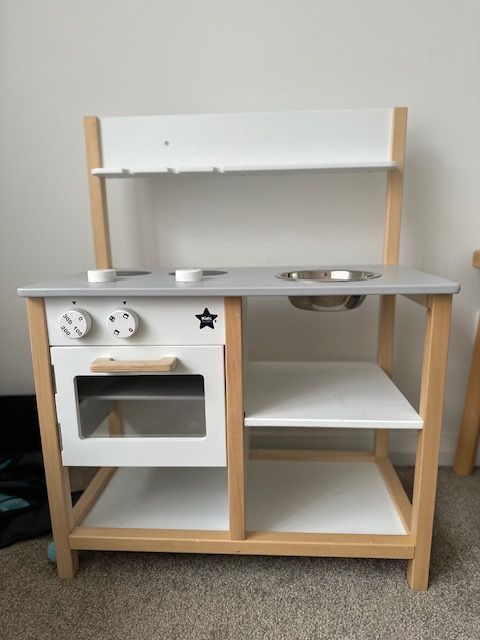
The Montessori materials' thoughtful design, self-correcting, and multi-sensory nature transforms the learning process into a journey of discovery that a child embarks on independently. This independence not only fuels the child's confidence but also nurtures a genuine love for learning.
Moreover, the materials' ability to cater to the sensitive periods in a child's development is crucial. It ensures that we are providing children with what they need when they need it most, optimizing their learning potential. As a parent and a Montessori advocate, I've seen first-hand the profound impact these materials can have on a child's learning journey, making them an integral part of the Montessori method of education.
Montessori Teachers and Guides
Montessori teachers, often referred to as guides, play a unique role in the Montessori education system. Their primary responsibility is to lead students towards self-directed learning, as opposed to traditional teachers who typically direct the entire learning process. Montessori teachers create a supportive environment that allows children to explore, experiment, and learn at their own pace.
One of the key aspects of a Montessori teacher's role is their ability to observe and evaluate each child's academic, emotional, and social progress, interests, and personality. This attentive observation enables them to provide valuable guidance and support to each student as they practice independence and responsibility.
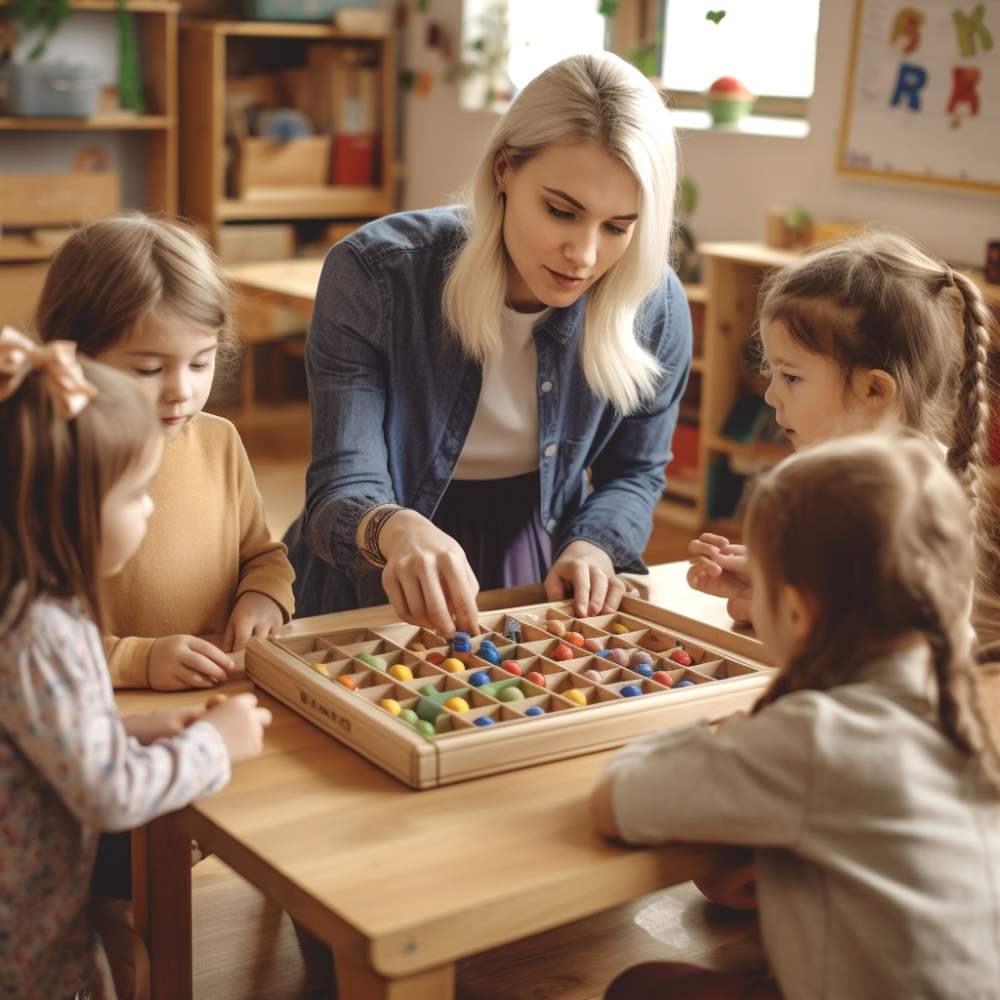
Montessori teachers ensure that they follow the core principles of Montessori education, which include:
- Recognizing the unique potential of each child
- Providing an individualized learning experience
- Encouraging independence and responsibility
- Developing critical thinking and problem-solving skills
- Fostering collaboration and social skills
- Creating a prepared environment that nurtures growth
- Focusing on hands-on, experiential learning
An integral part of becoming a Montessori teacher is undergoing specialized training to effectively implement the Montessori method. This training helps educators understand and apply the core components of authentic Montessori education, enabling them to create environments that support the cognitive, social, emotional, and physical development of their students.
Role of Parents in Montessori Education
In Montessori education, parents play a vital role in supporting their child's development. They are considered equal partners in the education process, collaborating with both the child and the teacher to create a successful and nurturing learning environment. Association Montessori International USA describes the roles of the child, parents, and teacher as interconnected sides of an equilateral triangle.
One of the primary responsibilities of parents in Montessori education is to create a suitable home environment that reflects Montessori principles. This includes incorporating the following features:
- Order and simplicity: Organize the home to promote independence and allow the child to navigate their surroundings easily.
- Accessibility: Provide materials, toys, and furniture that are accessible and age-appropriate for the child.
- Freedom and limits: Give the child freedom within boundaries to explore, learn, and make choices within their environment.
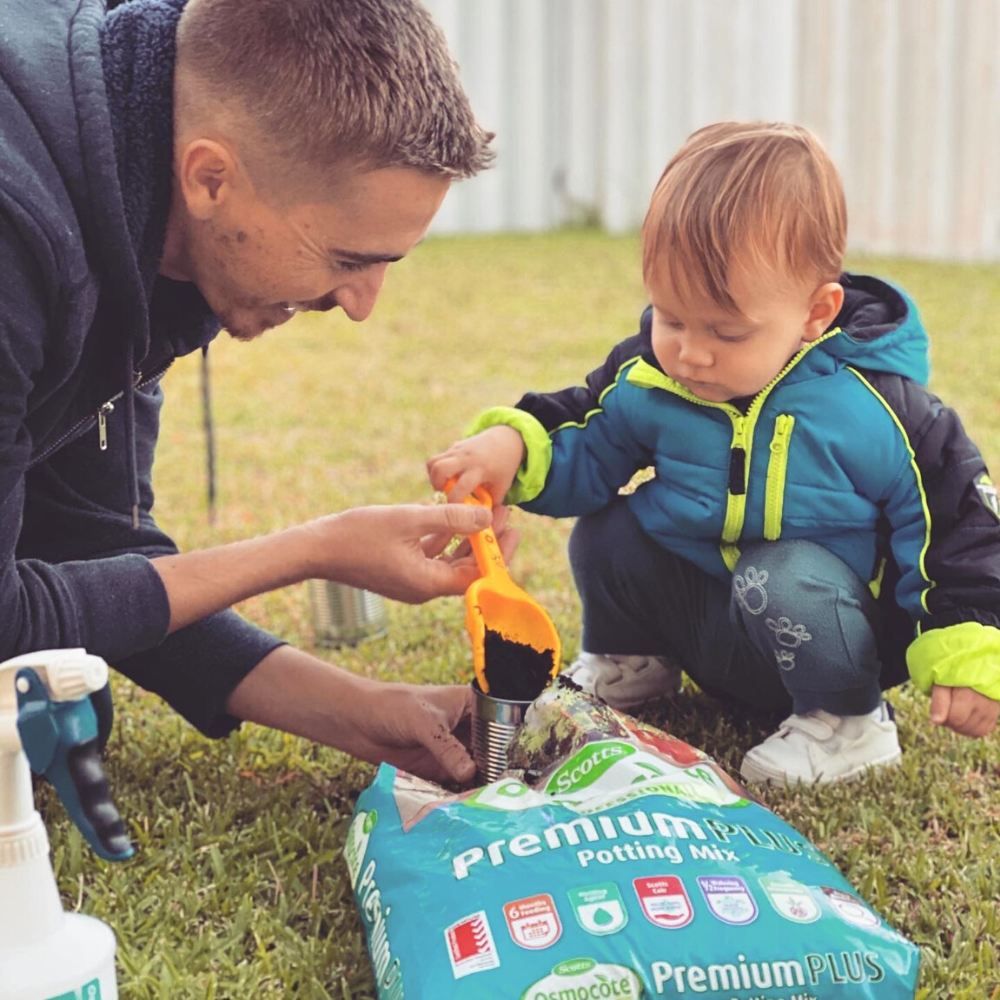
Parents also need to adopt a similar approach to that of a Montessori educator when interacting with their child. This means:
- Respecting the child's individuality and unique learning pace.
- Encouraging independence by guiding, rather than dictating, their activities.
- Supporting the child's intrinsic motivation to learn, rather than relying on rewards or punishments.
- Facilitating learning experiences by providing appropriate, stimulating materials.
- Encouraging the child's interaction with their environment and peers.
In addition, parents must maintain open communication and collaboration with their child's Montessori teacher. By attending parent-teacher conferences, participating in school events, and maintaining an ongoing dialogue about their child's progress, they can ensure a successful partnership between home and school.
Embracing the role of parents in a Montessori program offers a rewarding and transformative journey. Aligning home life with the Montessori environment and principles cultivates a continuity of learning, nurturing our children's curiosity and independence. Rather than merely instructing, we guide and facilitate self-discovery, fostering respect for their unique pace and interests.
By actively engaging and collaborating with Montessori educators, we form a harmonious triad of child, parent, and teacher. This partnership extends the educational experience beyond the classroom, shaping lifelong learners and well-rounded individuals.

To delve deeper into practical strategies, I invite you to explore my comprehensive guide on Montessori parenting strategies that you can implement effecitvely and easily.
Benefits and Limitations
Pros of Montessori Education
The Montessori Method offers a unique educational approach that fosters a child's sense of independence and self-guided work. A few advantages of the Montessori Method include:
- Wholeness: This method helps children develop a sense of wholeness as they work at their own pace and learn in a way that suits them best, either individually or with small groups at their level.
- Improved Executive Function: Children in high-fidelity Montessori schools show significantly greater gains on measures of executive function, reading, and math (source).
- Cooperative Play: The teacher does not run the classroom, allowing students to guide their activities throughout the day, which encourages cooperative play and exploration of various stations in the classroom (source).
- Respect for Children: One of the Montessori principles is to show respect for children, which can promote positive self-esteem and a strong sense of self-worth.
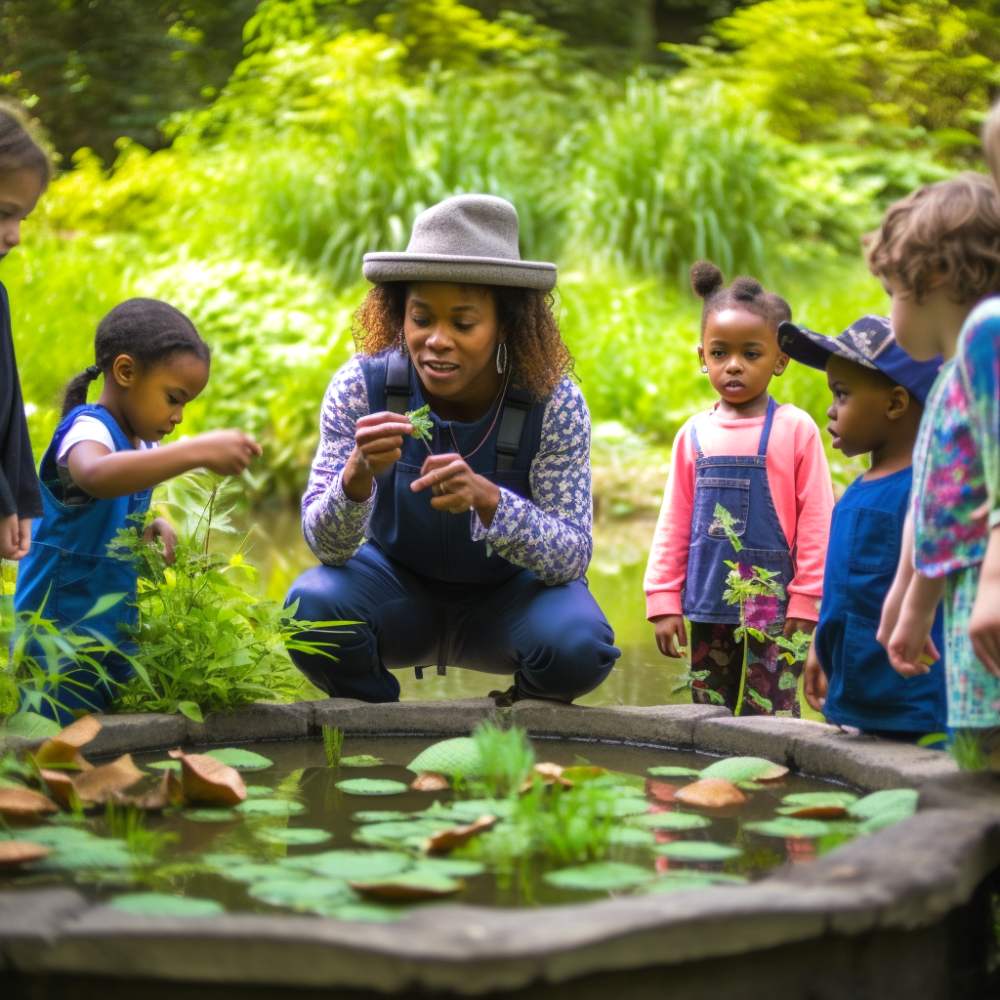
Cons of Montessori Education
While Montessori education has many benefits, there are also some limitations to consider. These include:
- Potential Challenge with Strict Structure: Montessori nurtures entrepreneurial mindset and individual thinking. This might sometimes pose a challenge when students have to transition into strictly structured environments. The adaptability varies from child to child (source).
- Variable Adherence to Montessori Principles: The effectiveness of the Montessori method relies heavily on faithful implementation of its principles. Montessori programs can differ in their degree of adherence, and this variance may influence the quality of education.
- Limited Accessibility: Despite growing popularity, Montessori schools may not be accessible to all. Geographic availability, long waiting lists, and tuition costs can pose challenges for families interested in this approach.
- Assessment and Accountability: Traditional education often emphasizes regular testing and grading, elements generally absent in Montessori classrooms. For some, this lack of standard benchmarks could be a concern, especially when considering transitions to conventional education systems.
As a parent who has watched my kindergarten-age son, Christian, immerse himself in Montessori playgroups, I understand the appeal of the Montessori approach. However, it's important to approach any educational model, including the Montessori method, with a discerning eye.
While the individualized, respectful, and holistic aspects of Montessori education can be incredibly beneficial, challenges such as adapting to strict structures later on, potential inconsistencies in Montessori programs, and limited accessibility are considerations that require thoughtful deliberation.
Deciding on the best path for your child's education is a deeply personal journey, and being informed about both the opportunities and obstacles is a crucial part of that process. This is why I like to provide balanced content so it's not coming across as a used car salesman (at least I hope so). Ultimately, I see my job as informing you and giving you the tools to make the best decision for yourself - one you can be proud of and confident in.
Montessori Across Age Groups
Infancy and Toddler Years
The Montessori approach begins from birth, focusing on helping infants and toddlers develop strong foundations for their future learning. During this stage, children are considered to have absorbent minds and can easily absorb information from their surroundings.
Montessori environments for infants and toddlers emphasize:
- Physical development: Encouraging movement and exploration of their surroundings, with materials designed for grasping, crawling, and walking.
- Social development: Fostering interactions with peers and adults, learning essential social skills through observation and imitation.
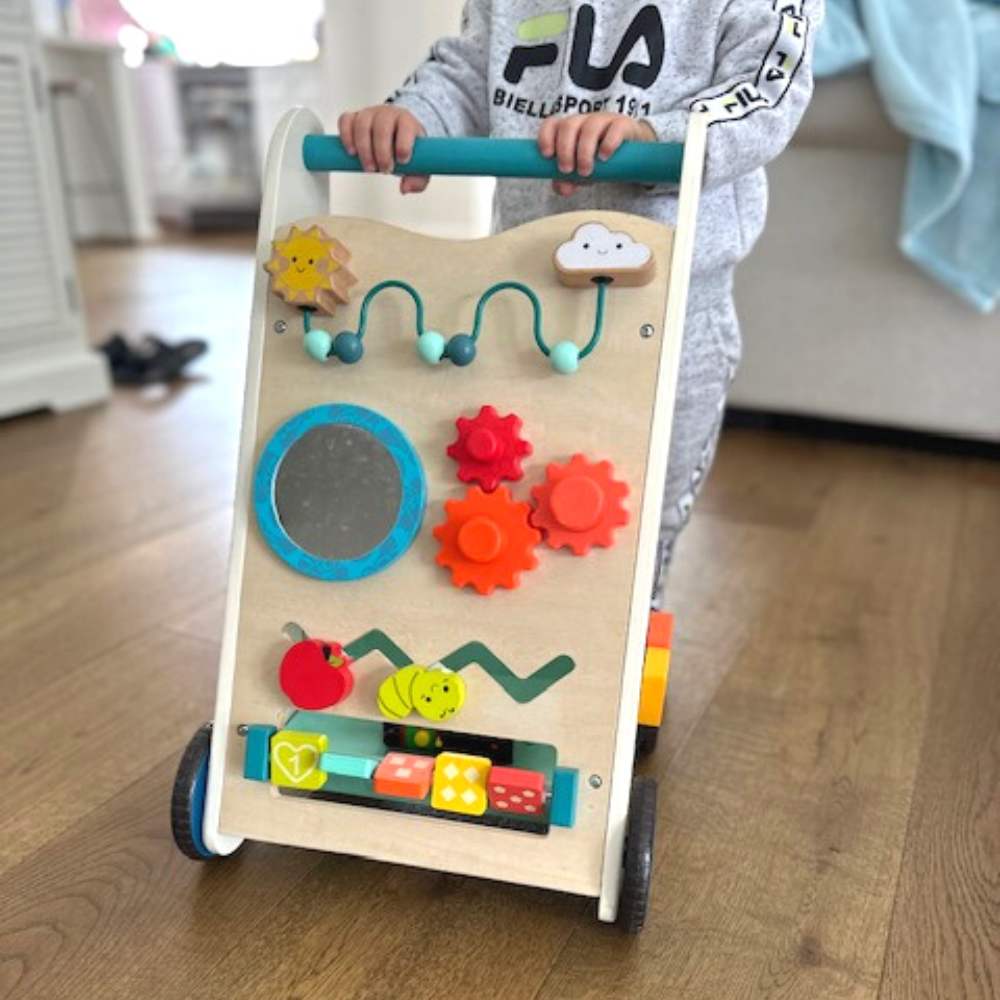
Elementary and Middle School
In Montessori elementary and middle school classrooms, children are placed in multi-age groups based on their stage of development. These mixed age classrooms promote:
- Social development: Opportunities for collaboration, mentoring, and learning from peers at different stages of development.
- Curricula: Material is tailored to the individual child's interest and ability, promoting independence and a love for learning.

During these years, Montessori education focuses on cultivating the child's intellect and promoting their inner drive for learning, incorporating exploration, hands-on experiences, and real-world connections into the curricula.
Throughout the Montessori age groups, the underpinning principles remain consistent: providing a carefully designed, nurturing environment that fosters independence, social development, and a deep-rooted love for learning. By considering the specific developmental needs and abilities of each child, Montessori education sets the stage for a lifetime of curiosity and growth.
Our Closing Thoughts
The journey of parenting is intricately tied to witnessing the unfolding of our children's authentic selves. As we traverse this path, it becomes evident that Montessori parenting offers a unique balance between fostering independence and defining boundaries. A balance that echoes the rhythm of life itself.

In my article at The Montessori Parenting Guide, we delve deeper into this concept, revealing the many layers of Montessori principles that can be beautifully intertwined with our everyday parenting approaches.
Yet, while the principles of respect, independence, and individualized learning inherent in the Montessori philosophy hold significant value, it's essential to recognize that each child's journey is unique. The Montessori method is not a universal solution; rather, it serves as an adaptable guide that can enhance our understanding and approach towards child-rearing.
For those interested in incorporating Montessori philosophy into their home environments, I recommend exploring the wealth of resources and insights available in my article on creating a Montessori-inspired environment at home.
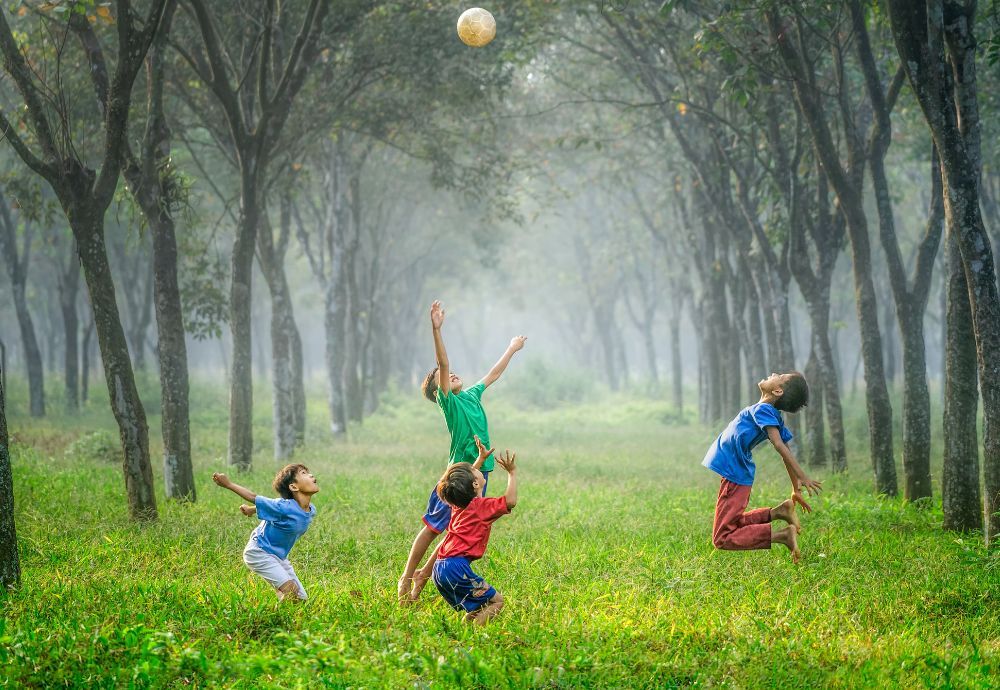
At the heart of it all, as parents, the most meaningful gift we can offer our children is love, respect, and understanding. These timeless values, combined with the nuanced insights from the Montessori approach, can help us cultivate an environment in which our children can beautifully and confidently blossom at their own pace.
